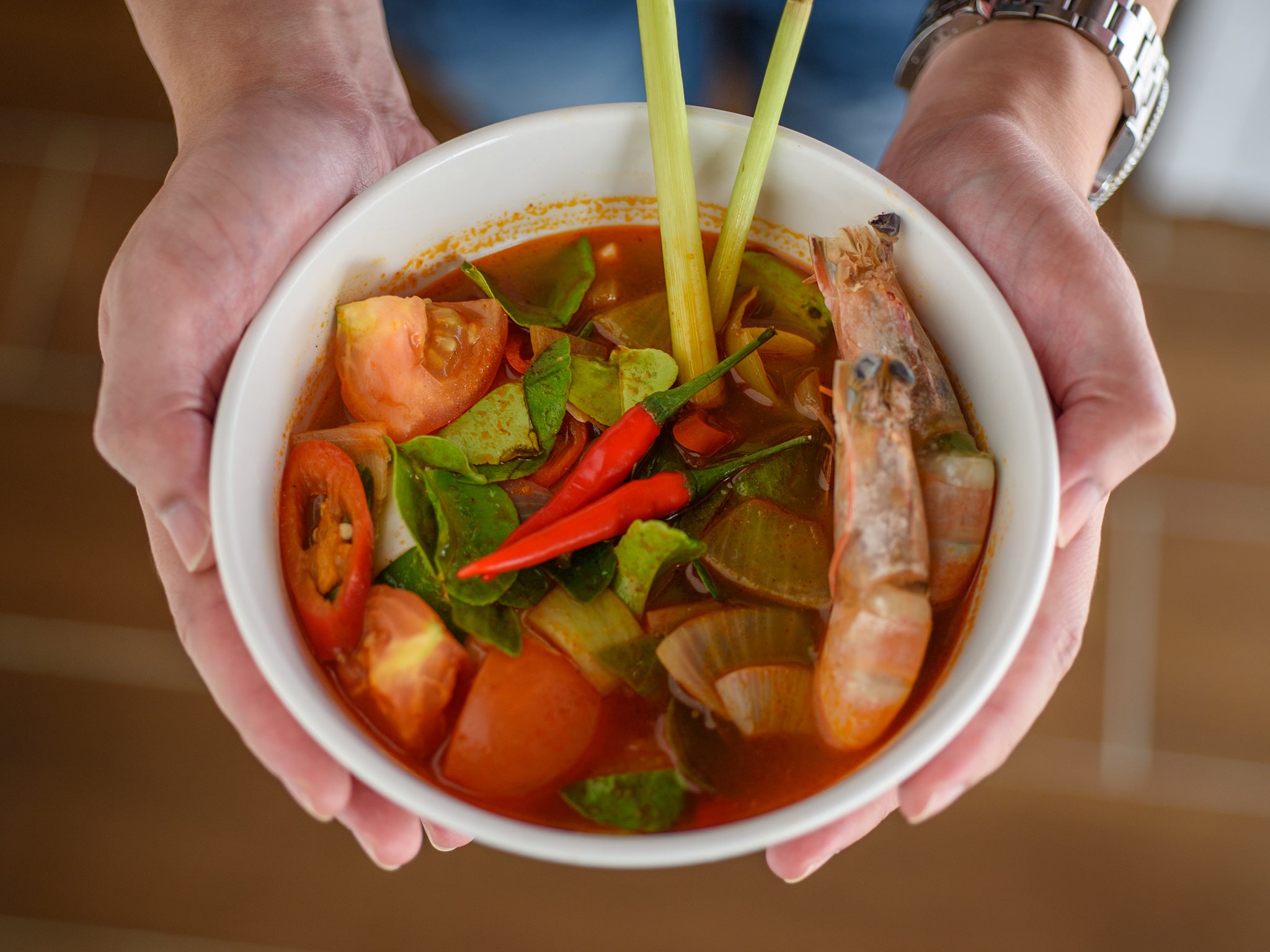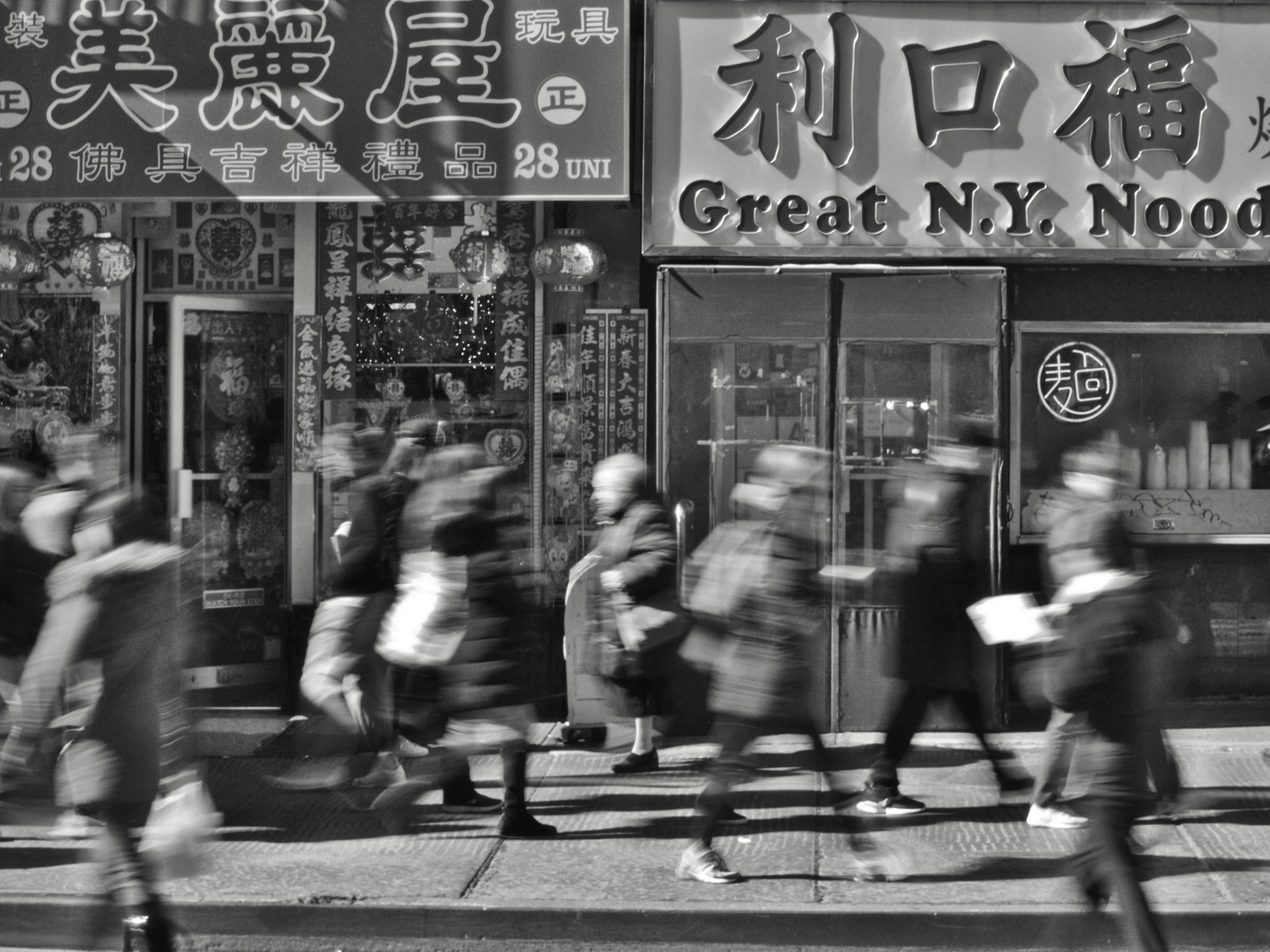How food helped me heal after an anti-Asian attack
After a violent, racial attack, Oranicha Jumreornvong found a healing power in food

Your support helps us to tell the story
From reproductive rights to climate change to Big Tech, The Independent is on the ground when the story is developing. Whether it's investigating the financials of Elon Musk's pro-Trump PAC or producing our latest documentary, 'The A Word', which shines a light on the American women fighting for reproductive rights, we know how important it is to parse out the facts from the messaging.
At such a critical moment in US history, we need reporters on the ground. Your donation allows us to keep sending journalists to speak to both sides of the story.
The Independent is trusted by Americans across the entire political spectrum. And unlike many other quality news outlets, we choose not to lock Americans out of our reporting and analysis with paywalls. We believe quality journalism should be available to everyone, paid for by those who can afford it.
Your support makes all the difference.Three nights after I was assaulted, I was still haunted. I dreamed of pacing towards the hospital where I work as a medical student. I dreamed of the man’s words, “Chinese virus”, as he kicked and dragged me, and I dreamed of the bystanders’ uncaring gaze.
I had studied these symptoms in others: hypervigilance, avoidance of associated stimuli, intrusive re-experiences and distress. My psychiatrist eventually diagnosed me with acute stress disorder, a precursor to PTSD that lasts from three days to a month after experiencing a life-threatening situation. As with many victims of anti-Asian assault, not all my wounds were visible.
I usually call my family in Thailand every day but couldn’t for three days after my assault. I did not dare shatter our American Dream with the lived experiences that many Asian Americans and immigrants face in this country. My father, who dreamed of reuniting with me after my medical training, finally contacted me after my radio silence. My family is not the type to show affection with words. But through the years, I could feel their love through a simple question: “Have you eaten?”
“Yes,” I lied. Unable to lie to him completely, I added before hanging up: “Aunty’s food is coming soon.”
Aunty Su is a former physical therapist in Thailand who became a massage therapist when she immigrated to be reunited with her son, who had married an American. At the onset of the pandemic, she started delivering affordable home-cooked meals to healthcare workers. I put my palms together in a “wai” to greet her when she delivered my first real meal since the assault. Tom yum is made from lemongrass, lime, galangal, fish sauce, chillis and sugar. “Tom” refers to the boiling process, while “yum” means “mixed”. Like what I had hoped and still believe America to be, these ingredients that did not seem likely to mix somehow created a wonderful taste of home.
I gushed at the first bite of the spicy wontons. How could anyone hate Asians when our food is so delicious?
Two weeks after my assault, I recovered physically and returned to Elmhurst Hospital, a Level 1 trauma centre. I was apprehensive about working with trauma patients, but my experience made me more empathetic. I no longer saw my patients as cases to study for exams but as survivors whom I admired for their resilience.
Although my team came from such disparate places as Ohio, New York, Israel, Puerto Rico and Thailand, we all shared a sense of care toward our patients – and a love of good food. During our 24-hour call, we ordered pad thai. I explained to my team that when Thais struggled to survive after rice became scarce during the Second World War, our prime minister promoted pad thai, made from cheap and simple ingredients including rice noodles, peanuts, scrambled eggs and bean sprouts, turning it into an internationally renowned dish.
The first time I went anywhere other than the hospital and my apartment was to a rally supporting the Asian American and Pacific Islander (AAPI) community in Chinatown. Michelle Lee, a Cornell radiology resident who also experienced discrimination during the pandemic, invited me to speak to more than 1,000 rallygoers, including 100 healthcare workers. She held me as my body shook when I shared my experience publicly for the first time.

I was so hungry that I almost fainted after my speech. So for the following rally in Flushing, Lee took me to White Bear, a tiny Chinese restaurant with a big menu of dumplings taped over its counter.
Although my father is Thai and my mother is Chinese, my mother had told me to tell others that I am Thai because she did not want me to be discriminated against the way she was when a stranger spat at her and told her to “go back to China” the first time she visited the United States.
I had previously prayed only for good grades and had visited temples for the free food. This time, I prayed for the courage to be honest with my father again
I thought back to my childhood in Thailand, preparing for Lunar New Year. My grandmother and great aunt lined the half-moon-shaped dumplings before steaming them in bamboo baskets. Before I moved abroad, my family had insisted that I learn how to cook so that I could feed my foreign friends in America. They said: “Your friends may come from different backgrounds, but we all must eat.”
After the rally, we went to Xing Fu Tang. I lined up with other AAPI, black, Hispanic and white people from the rally, all of us salivating over the same brown sugar bubble milk tea.
Before my shift with the infectious-disease and Covid-19 team, I visited Wat Thavorn Vanaram, a Thai Buddhist temple a few blocks away from Elmhurst Hospital. The last time I had visited this temple was for New Year’s Eve before the pandemic, when Thai New Yorkers brought a variety of Thai dishes to share. Unlike my father, a former monk, I am not religious.
After my visit at the temple, I ordered Hainanese chicken and Thai milk tea from Eim Khao Mun Kai, the restaurant my family and I ate at the last time they visited the United States. It had been a few years since I saw them and a few weeks since I spoke with my father. I called him again and he quickly picked up the phone and asked: “Have you eaten?” I dipped the boiled chicken into the chilli-garlic sauce before tasting it with the ginger-seasoned rice. A big smile grew on my face as I took a sip of the aromatic milk tea before responding: “Yes, and I wish you were here to share it with me.”
© The Washington Post
Join our commenting forum
Join thought-provoking conversations, follow other Independent readers and see their replies
Comments